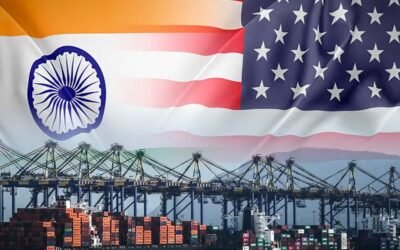WASHINGTON, August 29, 2025 — The United States has officially ended its long-standing “de minimis” tariff exemption for low-value imports, a move expected to have far-reaching effects on global trade, e-commerce, and small businesses.
The exemption, which allowed shipments under $800 to enter the U.S. duty-free, had already been suspended for goods from China and Hong Kong in May 2025. The policy is now extended to all countries, including Pakistan.
The US administration ended duty-free imports of packages worth less than $800, known as the ‘de minimis’ exemption, a decision that increases costs for retailers around the world selling to the US and will likely cause prices to rise for American shoppers https://t.co/ccC0G467uA pic.twitter.com/2AZK3IV4Y1
— Reuters (@Reuters) August 29, 2025
What This Change Means
- End of Duty-Free Imports: Previously, packages valued below $800 could be shipped into the U.S. without tariffs. This benefited e-commerce retailers and small exporters worldwide.
- Higher Costs for Buyers and Sellers: Now, all packages regardless of value face the same tariff rates as bulk commercial shipments. Businesses warn this will push up consumer prices.
- Logistical Delays: Courier and postal services must now collect and remit duties before delivery. Industry experts expect slower processing and more paperwork, especially for cross-border e-commerce orders.
Impact on Pakistan
The change could hit Pakistani small businesses and exporters particularly hard.
- Reduced Competitiveness: Pakistan’s textile, leather, and handicraft sectors — which rely heavily on direct-to-consumer sales to the U.S. — will see higher retail prices, making products less competitive against local or alternative imports.
- Strain on E-commerce Sellers: Pakistani artisans who sell via Etsy, eBay, and other online platforms face new challenges. The additional duties and shipping complications may discourage direct sales to U.S. consumers. Some postal services have even suspended shipments to the U.S. until compliance systems are in place.
- Government Strategy: The Ministry of Commerce is consulting with exporters and exploring trade diplomacy options to reduce the impact. Officials are also considering incentives and logistical support to help small businesses maintain U.S. market access.
A Blow to Global E-commerce
Analysts note that the policy shift reflects a broader trend of the U.S. tightening trade regulations in response to rising imports and pressure from domestic industries. While it aims to protect local producers, the decision may disrupt international supply chains and raise consumer prices.
You May Like To Read:







